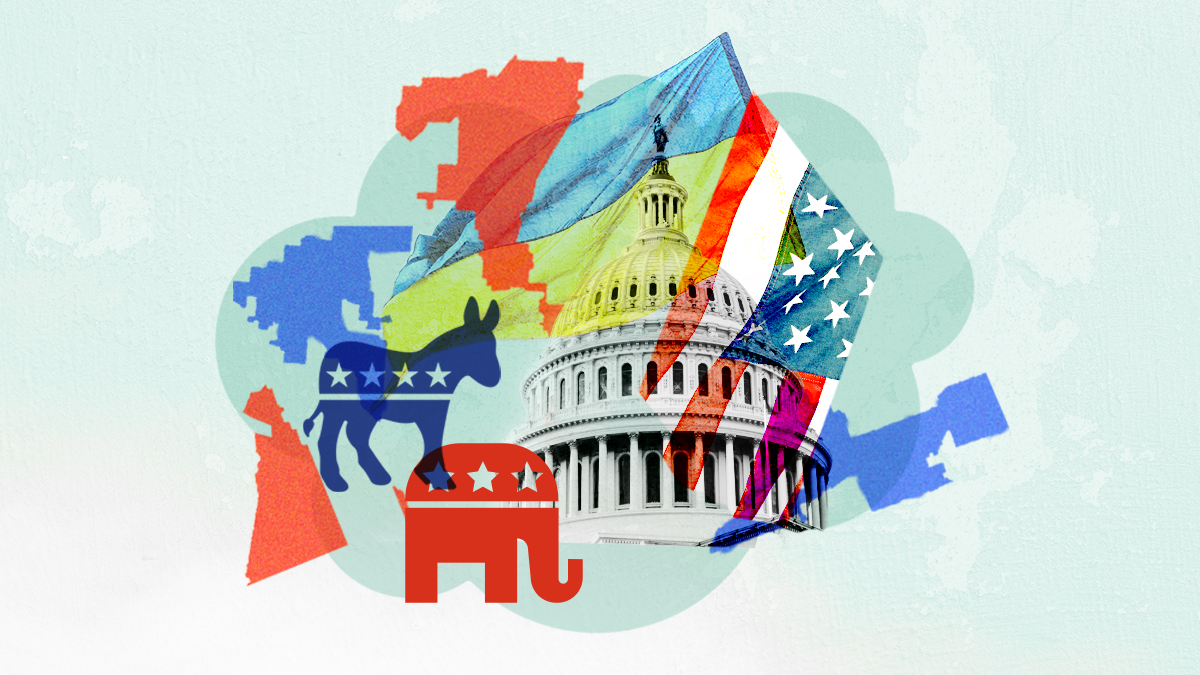Republicans and Democrats disagree on pretty much everything these days, yet they’ve shown remarkable unity to date on one issue: Ukraine.
But as midterm elections loom, the winds are changing in Washington, D.C., where an increasing number of legislators on both sides of the aisle – particularly Republicans – have warned that the days of unchecked handouts to Ukraine could soon be over.
That’s bad news for Ukraine, of course, but it’s also bad news for President Joe Biden, who has staked his dwindling reputation on being able to unite a Western alliance – including a politically divided US – against an aggressive Russia.
An awkward Democratic flip-flop. A group of 30 progressive Democrats on Monday sent a letter to the White House calling for dialogue with the Kremlin and for future aid to be contingent on a negotiated settlement in Ukraine. After a savage backlash from the Democratic Party, the group withdrew the statement, but the excuse they gave for the about-face was … unconvincing: They said it was an old letter drafted over the summer that was mistakenly released by staffers.
Amid mounting criticism, Rep. Pramila Jayapal, chair of the Congressional Progressive Caucus, claimed that despite espousing a very similar view to some of her colleagues across the aisle, her crew’s take is different: “The proximity of these statements created the unfortunate appearance that Democrats … are somehow aligned with Republicans who seek to pull the plug on American support for President Zelensky and the Ukrainian forces,” she said.
The GOP game plan. Though this awkward flip-flop is the last thing Biden needs ahead of Nov. 8, schisms within the Democratic Party on Ukraine policy will be less consequential in a post-midterm world, in which Republicans are slated to take control of the House of Representatives and perhaps the Senate. Indeed, all funding decisions are regulated by the House’s powerful Appropriations Committee (with support from Senate colleagues) – so whoever controls the lower chamber holds the power of the purse.
And there are signs that things will indeed be different under a GOP-led Congress. House Minority Leader Kevin McCarthy – who is all but assured to take over as House speaker in January and is likely trying to gain the support of his caucus – recently said that the days of giving a “blank check” to Ukraine are over.
Though McCarthy has himself been supportive of high levels of military and economic support for Ukraine in recent months, this approach is consistent with those espoused by the ragtag of election-denying and isolationist Republicans running for House seats next month. Tellingly, when asked about the prospects of sending more packages of similar value (Congress has so far greenlit a whopping $65 billion for Ukraine), McCarthy said “they [his GOP colleagues] just won’t do it.”
Will Biden front load? To date, the lion’s share of US support for Ukraine has been distributed through Congressional appropriations, just as the founding fathers intended. But if the GOP wins the House and/or Senate – and slashes the Ukraine budget – Biden still has options.
First, there are indications that the White House will try and secure a massive aid package – worth up to $50 billion – for Ukraine before the new Republican cohort takes office in January. This would be almost equal to the entire amount Washington has sent Kyiv over the past eight months. Importantly, there are reports that Senate Minority Leader Mitch McConnell, a Republican stalwart and pro-Ukraine crusader, has Biden’s back on this.
Moreover, Biden could also use a stopgap known as the Lend-Lease Act of 2022, a bill passed earlier this year that allows the White House to lease military hardware to Ukraine and Eastern Europe through the end of the 2023 fiscal year. This would allow Kyiv to continue accessing the equipment it needs to wage a powerful defense, while also sending a message to President Vladimir Putin that the US isn’t backing down in its support for Ukraine. (Irony alert: Lend-lease isn’t new. During World War II, the US armed the Soviet Union under this program, with the Soviets – and then the Russian Federation – continuing to pay back the loan well after the Cold War.)
For now, Americans across the aisle continue to support the government's efforts to arm Ukraine. But as gas and food prices remain sky-high throughout the winter, that could change. Everyone’s pain threshold has limits.
Don't miss: Eurasia Group's lead US politics analyst Jon Lieber weighs in on whether America's support for Ukraine is softening.
This article comes to you from the Signal newsletter team of GZERO Media. Sign up today.



















